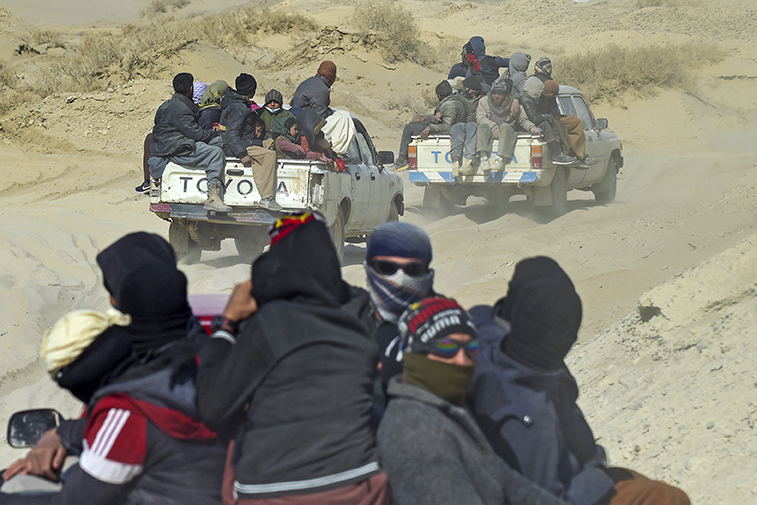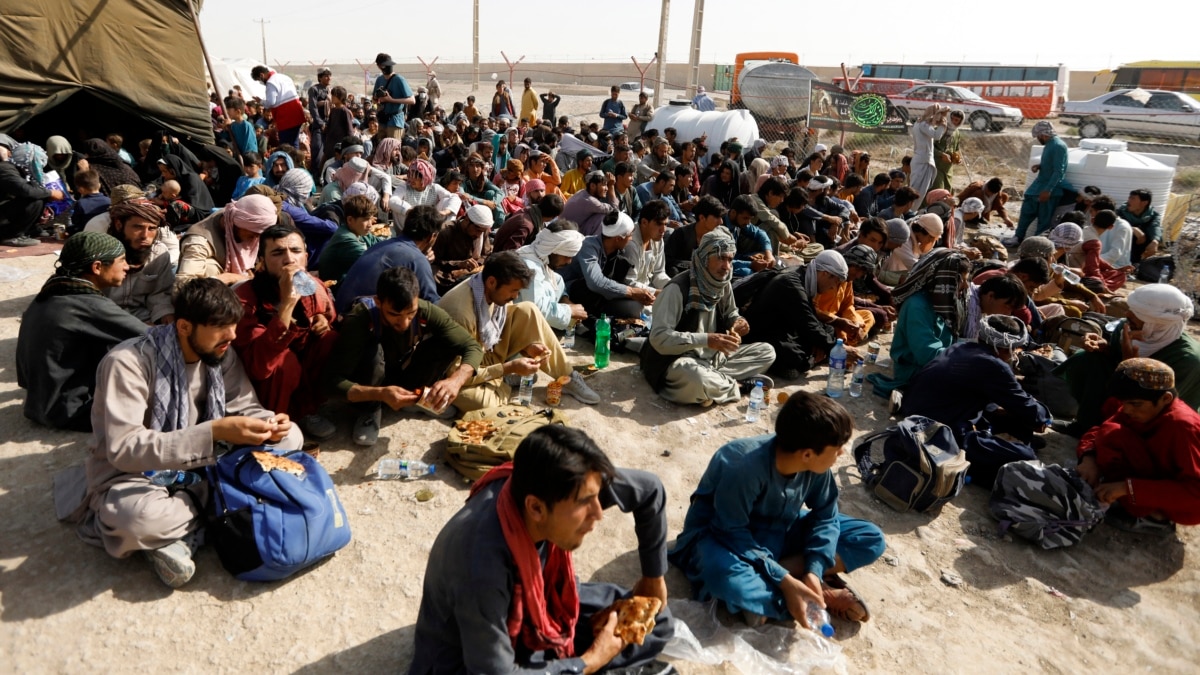In Nimruz province, the human trafficking market remains operational, with reports indicating that traffickers continue to smuggle individuals toward the Iranian border despite official decrees from the Taliban leadership, according to Hasht e Subh. Some residents claim that most trafficking caravans depart from Zaranj, the capital of Nimruz, bound for the border, while the Taliban's efforts to prevent the illicit activity appear to be limited to public proclamations rather than effective action.

Mohammad Qasim Khalid, the Taliban governor in Nimruz, announced nearly two weeks ago that the “Duk” border would be closed to human traffickers. However, sources suggest that the border remains open, with trafficking continuing unabated. According to locals, the Taliban's response to the issue has been inadequate, focusing largely on issuing religious directives through mosque clerics while failing to take substantive measures to stop the practice.
Despite the Supreme Leader Hibatullah Akhundzada’s decree prohibiting human trafficking, allegations have emerged that local Taliban officials remain complicit in the trade. Human traffickers in the region claim that local commanders accept bribes and issue permits, allowing the practice to continue. Fazl Ahmad (a pseudonym), a trafficker operating in Nimruz, stated that traffickers pay local Taliban officials for these permits, which are crucial for their operations. According to Ahmad, each vehicle carrying passengers receives two permits, for which traffickers are charged 530 Afghanis per document.
“We heard that the Taliban Supreme Leader is stopping the traffickers’ work, but no one has told us to stop. As before, our work continues,” he explained.
Ahmad further emphasized that the trafficking business thrives with the Taliban’s tacit approval, with payments made to officials in exchange for documents that allow the transport of people.

Another trafficker, Gul Ahmad (pseudonym), revealed that some Taliban commanders in Nimruz are not only complicit but are directly involved in managing the trafficking networks.
He noted: “We heard that the Taliban are stopping human trafficking, but these very people are the key players in the trade and make the most profit from it. They collect at least 10,000 Afghanis or more daily from the traffickers’ vehicles.”
Ahmad also stated that many Taliban members, along with their relatives, are deeply involved in human trafficking, and the province’s border location makes it difficult to curb these illicit operations.
"Very few Taliban members are not involved in drug or human trafficking," he added.
While the Taliban's Ministry of Information and Culture in Nimruz has placed banners around the province condemning human trafficking and promoting it as a violation of human dignity, these efforts have done little to curtail the trade. Despite the Supreme Leader’s decree banning trafficking, traffickers report continuing their operations with full knowledge and even cooperation from local Taliban officials.
The decree, which includes instructions for local commanders to combat trafficking, has largely failed to reach those most involved in the practice. Traffickers continue to profit, and local Taliban officials reportedly make substantial sums from the illegal trade.
Follow Daryo's official Instagram and Twitter pages to keep current on world news.

Comments (0)